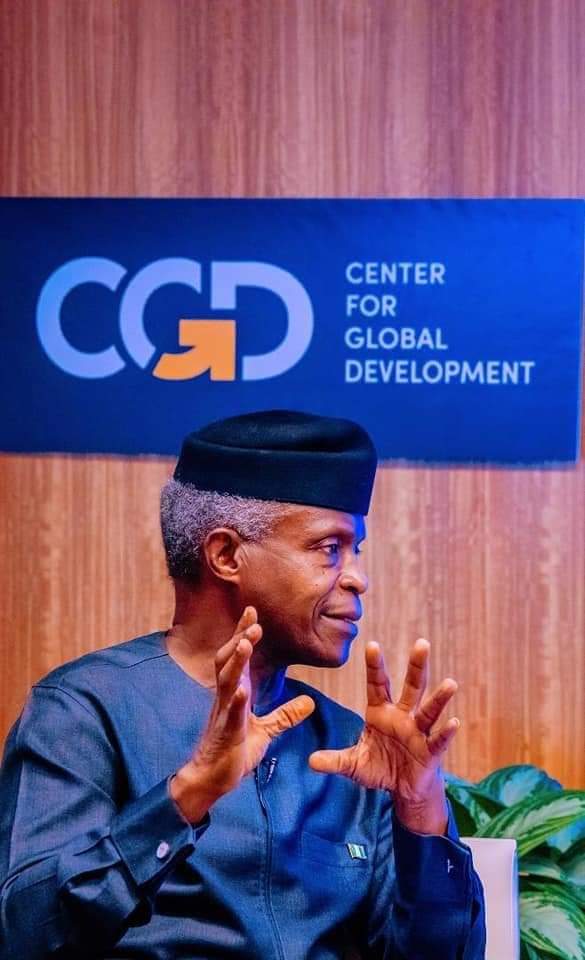
The Vice President, Professor Yemi Osibanjo, has advocated debt for climate swap deal to advance the course of global net-zero emissions targets, facilitate energy access and the development of African countries.
Vice President, Prof. Osinbajo, who made the call during a lecture on a just and equitable energy transition for Africa at the Center for Global Development in Washington, D.C., said it was a win-win for both creditor/developed nations and Africa.
In a statement by his Senior Special Assistant on Media & Publicity, Laolu Akande on Friday, Professor Osinbajo explained that the climate swap deal would increase the fiscal space for climate-related investments and reduce the debt burden for participating developing countries
“debt for climate swaps is a type of debt swap where bilateral or multilateral debt is forgiven by creditors in exchange for a commitment by the debtor to use the outstanding debt service payments for national climate action programs”. “For the creditor the swap can be made to count as a component of their Nationally Determined Contributions (NDC)”, the statement reads.
Global carbon market
Prof. Osinbajo also proposed the greater participation of African countries in the Global Carbon Market while exploring financing options for energy transition.
“Currently, direct carbon pricing systems through carbon taxes have largely been concentrated in high and middle-income countries. However, carbon markets can play a significant role in catalyzing sustainable energy deployment by directing private capital into climate action, improving global energy security, providing diversified incentive structures, especially in developing countries, and providing an impetus for clean energy markets when the price economics looks less compelling – as is the case today”, he noted.
Prof. Osibanjo appealed to developed countries to support Africa to develop into a global supplier of carbon credits, ranging from bio-diversity to energy-based credits, in order to align carbon pricing and related policy to achieve a just transition.
RN
